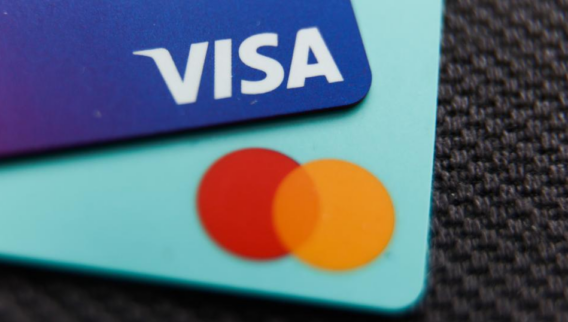Because credit card issuers need contracts to be enforceable, card agreements are often dense and can be difficult to fully understand. Terms regarding interest can be especially difficult to parse since interest is typically expressed as an annual percentage rate (APR) and requires the use of polynomial algebra to calculate. To avoid triggering traumatic memories from math class, use our credit card interest calculator to help you understand how much interest a carried balance will accrue or how much you might owe if you don’t pay your credit card bills on time.
How Do I Calculate Credit Card Interest?
To calculate your credit card interest using the average daily balance method, divide your annual percentage rate by 365 to determine the daily interest rate. Every day that you carry a balance, this daily rate applies to the balance from the day before. The higher the APR, the larger the amount of interest accumulated daily.
Unless you’re calculating interest on a balance transfer or cash advance, the APR used is typically your card’s standard APR and can be found within the Schumer box section of your cardholder agreement.
How Does Credit Card Interest Work?
Credit card interest typically accrues when you carry a balance on a card. Paying less than the entire balance before a statement due date means you’ll carry any remaining balance. Interest will accrue on a carried balance. If you pay off your balance in full by the end of the month or billing period, you won’t accrue interest on purchases.
Interest is represented by an annual percentage rate or APR. APRs may be fixed or variable depending on whether they’re tied to the prime rate, so the actual rate may change. An APR is annual, but interest compounds daily.
To find the actual rate applied to your balance on a daily basis, divide the APR by 365 days. This daily rate is applied to your balance every day that the balance remains unpaid, which means your balance will grow exponentially, as each day’s balance will be higher than the day before.
Usually, card issuers provide a grace period to help you avoid accruing interest. So long as you pay your bill in full before the end of the billing cycle, you won’t accrue interest on your balance. Though grace periods don’t apply to cash advances, you can lose a grace period if you carry a balance. Cards typically require on-time, in-full payments to recover the grace period and be able to avoid interest again.
Best 0% APR & Low Interest Credit Cards Of 2024
What Is the Average Credit Card Interest Rate?
The average interest rate in February 2024 was 22.63%, according to the Federal Reserve. Credit card rates shift for individual consumers based on several factors, including creditworthiness. Typically, the lower your credit rating, the higher the interest rate you’ll be offered by an issuer for the same card.
Frequently Asked Questions (FAQs)
When do you pay interest on a credit card?
A balance on a card accrues interest when carried. In other words, if you don’t pay your credit card bill in full by the end of the month or billing period, any balance remaining will accrue interest at the rate determined by the card’s terms. This interest will be added to the balance and the account holder must pay it off before closing the account.
How do I lower my credit card interest rate?
If you’ve demonstrated responsible spending and credit habits, a lender may be willing to lower the interest rate on an existing card. There’s no guarantee a card issuer will lower your interest rate, but if you’re worried about or planning to carry a balance (we never recommend carrying a balance if it can be avoided), you can contact your issuer about a rate reduction. If a rate reduction isn’t possible and you need another solution, explore transferring a balance to a new card with a lower APR or an introductory APR offer.
What are the best low-interest credit cards?
The best low-interest credit cards offer APRs below the average. Most also don’t charge annual or other maintenance fees and provide additional useful benefits.
Is credit card interest tax deductible?
Interest incurred on credit cards for personal expenses isn’t deductible. However, interest on certain small business expenses may be deductible, so be sure to consult your tax advisor.
How do I avoid interest on my credit cards?
To avoid credit card interest, pay all credit card bills in full and on time. Card issuers typically extend a grace period to allow you to avoid interest by paying on time, but this goes away the moment you carry a balance—any new purchases will usually begin to accrue interest the day the purchase is made. Recovering a grace period following a carried balance typically requires a series of in-full, on-time payments.








